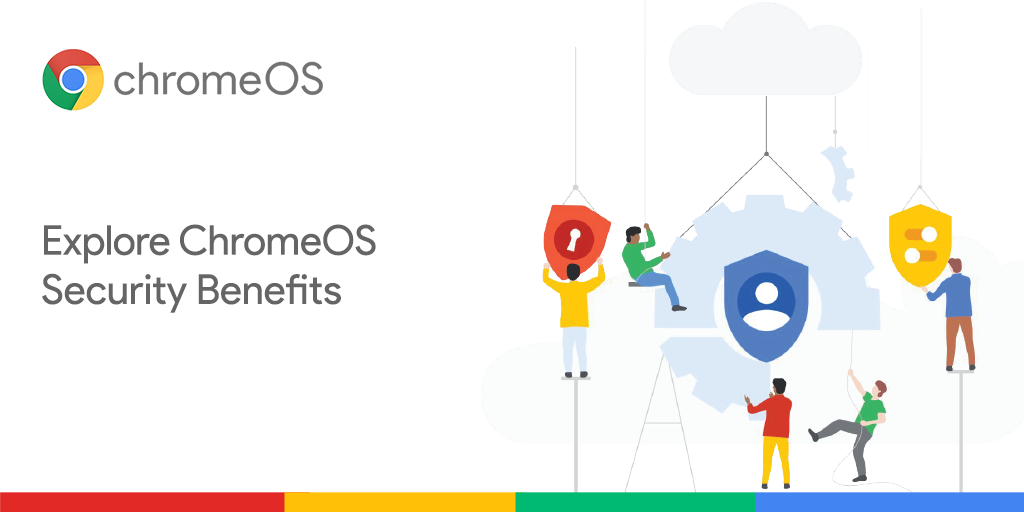When it comes to technology, security serves as the safety lock on your company’s digital life. It safeguards sensitive information, mitigates risks, and ensures the integrity of systems. Without having solid security measures in place, technology becomes vulnerable to cyber threats, compromising user privacy, financial stability, and overall trust in digital infrastructure.
Your employees shouldn’t need to be IT security experts to work safely online. Thankfully, ChromeOS is built on an advanced security infrastructure based on Zero Trust principles, where no user or device is automatically trusted. This ensures every device is ready to use straight out of the box, saving your organisation time and money on additional security configurations.
In fact, according to a recent competitive analysis report by Atredis Partners, ChromeOS is the most secure operating system out of the box when compared to Windows 11 and macOS.1 With ChromeOS, every login and file download undergoes rigorous security verification. Let’s delve into the key findings from the report that highlight how ChromeOS protects users, data, and devices comprehensively.2
1 When contrasted with macOS and Windows 11, ChromeOS offers the most secure experience.
2 A commissioned study conducted by Atredis Partners on behalf of Google, “Google ChromeOS Security Competitive Analysis Report”, April, 2024.
3 As of 2024, there has been no evidence of any documented, successful virus attack or ransomware attack on ChromeOS. Data based on ChromeOS monitoring of various national and internal databases.
